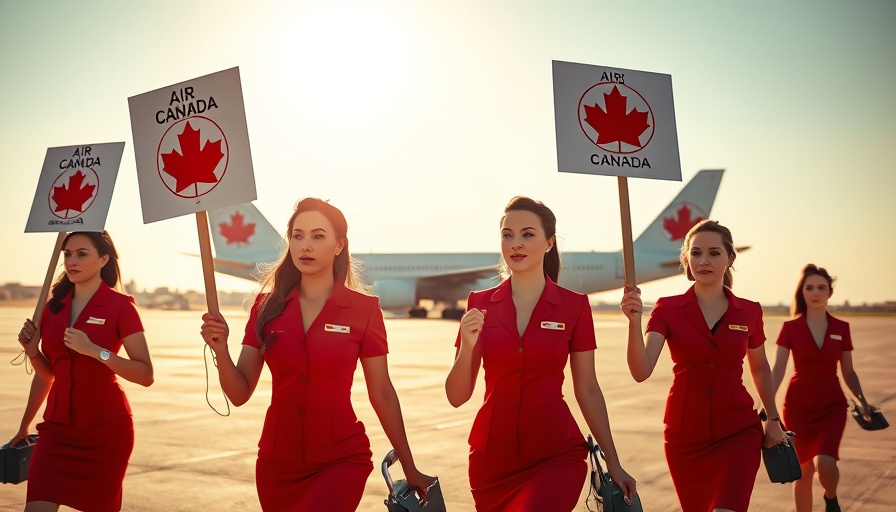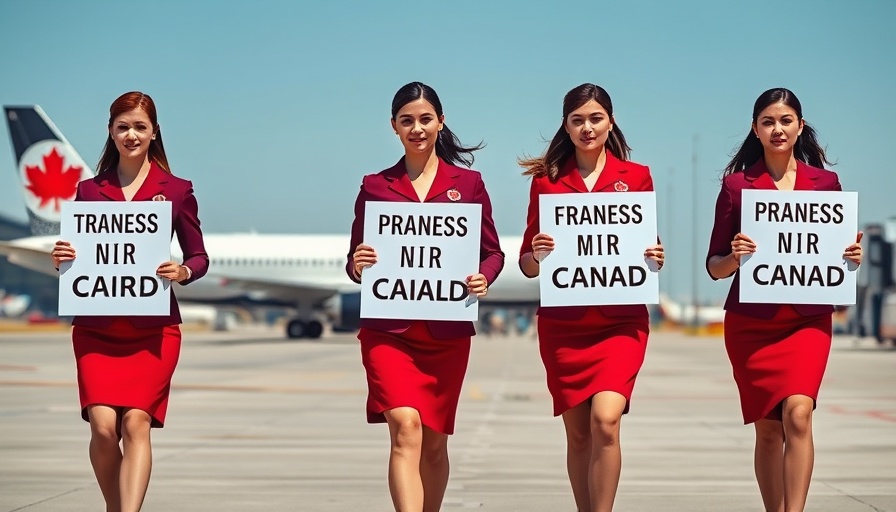
Air Canada Flight Attendants’ Strike: An Ongoing Dispute
The recent strike by Air Canada flight attendants highlights significant labor tensions amidst changing economic conditions. While less than 12 hours after it began, the federal government issued a back-to-work order, the Canadian Union of Public Employees (CUPE) has declared that its members will continue to strike. This bold move reflects the union's dissatisfaction with the terms proposed in ongoing negotiations.
Understanding the Context: Why Does this Matter?
The flight attendants' decision to refuse to comply with the back-to-work order speaks to deeper issues within the labor market, particularly post-pandemic recovery dynamics. Workers are increasingly asserting their rights, advocating for fair treatment and satisfactory working conditions. This sentiment is mirrored across various sectors, as many employees seek more from their employers amid rising living costs and inflationary pressures.
The Role of CUPE in Labor Relations
CUPE has expressed strong determination to continue negotiations with Air Canada, emphasizing the need for a fair deal. Their invitation to return to the bargaining table sparks hope for resolution but also emphasizes the urgency of the situation. With more than 700 flights canceled amid the ongoing work stoppage, passengers are left in limbo while both sides grapple with their demands.
Implications for Air Travel and Passengers
For travelers in Alberta and beyond, the strike represents a severe disruption in air travel plans. With significant flight cancellations affecting thousands, the ongoing dispute poses an immediate challenge for travelers aiming for time-sensitive travel. As airlines and unions negotiate the terms, it is vital for passengers to stay informed about their rights and the situation's developments.
Future Considerations and the Bigger Picture
This strike raises questions not just about Air Canada, but about labor relations in the aviation industry as a whole. Workers' willingness to strike indicates a shift in dynamics, where employees are no longer willing to accept unfavorable conditions. As the airline industry adapts to the aftermath of COVID-19, it must also reconcile with the evolving expectations of its workforce. The journey toward fair labor practices is ongoing; the outcomes of this dispute could set precedents for future negotiations across the sector.
Conclusion: The Call for Understanding
As the situation develops, it’s crucial for adults interested in a healthy and fulfilled life to understand the implications of such labor disputes on broader societal dynamics. Remaining informed and empathetic to the challenges faced by workers in various industries not only aids in navigating disruptions like these but fosters a more well-rounded perspective on labor rights and fair treatment. Stay engaged and informed as the negotiations progress.
 Add Row
Add Row  Add
Add 




Write A Comment